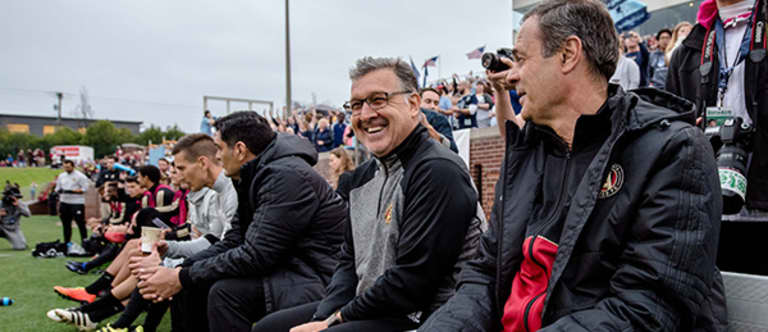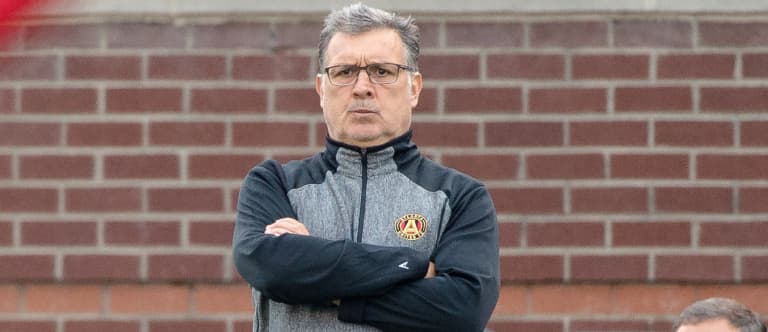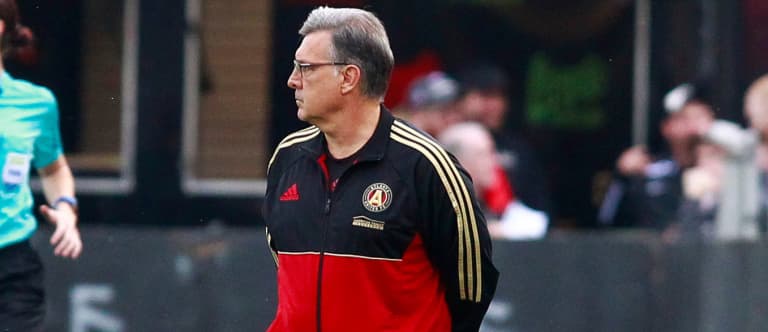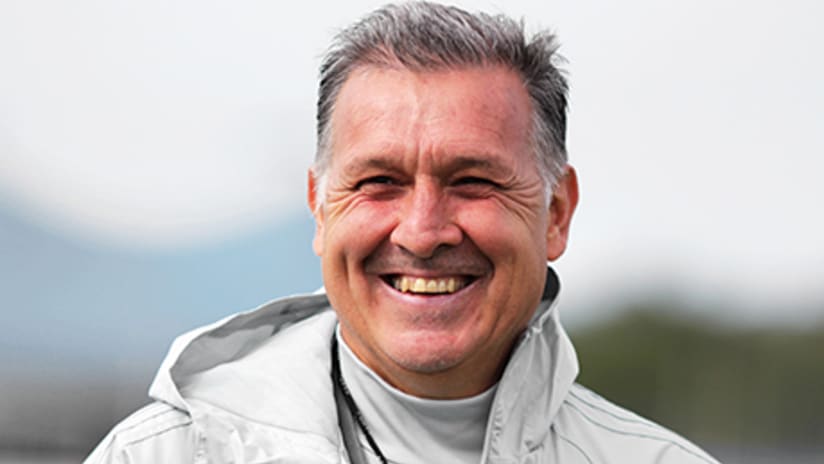As I started putting my fingers to the keyboard for this column on new Atlanta United manager Gerardo "Tata" Martino, I found myself pondering: Is he the flagship coach of MLS 3.0? The man that will finally break the hex that seems to haunt foreign coaches in MLS?
Both could prove true, although the questions will surely be revisited constantly over the course of this upcoming season, such is the fascination with international coaches and whether they can cut it in MLS. However, my reflections left me with one overriding thought: This league has never seen anyone quite like Martino on the sidelines.
It’s not solely about his pedigree – Carlos Alberto Parreira manned the bench for the NY/NJ MetroStars way back in 1997, just three years removed from winning the World Cup with Brazil.
Nor is it only about his philosophy – there are plenty of coaches in MLS committed to their team’s vision (see Patrick Vieira at NYCFC), developing youth, and playing what pundits would call “the right way.”
In Tata Martino, there exists for the first time in the league a coach that brings both a world-class pedigree and a sound philosophy to a blank slate in Atlanta where he can design his own team. And few coaches are better-equipped to do so.
Some of that is down to circumstance – Martino comes into the league at a time when teams are spending more than ever on both their first team and academy systems, and Atlanta’s substantial outlay so far has shown they’re willing to spend with the best of ‘em, albeit in slightly different ways.
And when you combine those substantial resources with Martino’s pedigree, philosophy, and attention to detail, you have the recipe for something truly unique.
The Tata Dossier

The last element in particular bears further discussion – Martino’s hire was not a pie in the sky idea that Atlanta’s brass just happened to dream up. As Fox Sports South’s Zach Dillard recounted, Martino was the one who actually reached out to team president Darren Eales and technical director Carlos Bocanegra, before wowing them when they met over dinner in Argentina.
One anecdote in particular highlights how Martino, who could’ve had most any coaching job in the world, was a man laser focused on winning over the Atlanta decision makers.
“He had a dossier about the size of one of those old telephone directories you used to get,” Eales recalled of the notebook Martino brought with him that contained every MLS roster and formation.
But even the biggest notebook couldn’t fully prepare Martino for the quirks of managing in MLS, even after managing in two of the most cutthroat environments in world soccer with FC Barcelona and Argentina's national team.
“Before, the budget was something that I didn’t have to worry about. But here, I have to know the budgets, I have to talk a lot to the players we want to sign,” he said in early February. “There are a lot of situations that keep presenting themselves that are totally unrecognizable for me.”
He’s hardly alone in terms of foreign coaches coming to MLS. Some manage to get a handle on the ever-evolving rules and regulations of the league, some get by, and many never quite get a full grasp of it. This is where one of Martino’s most important traits – adaptability – comes into play.
Martino's Philosophy

In his career as a head coach, Martino has seen all sides of the spectrum. He moved from his native Argentina to the Paraguayan league to seek out his initial success. He’s taken Argentina to two Copa America finals, but only after guiding Paraguay from South American afterthought to the team that almost knocked out Spain in the 2010 World Cup quarterfinals and reached the Copa America final the following year.
He’s played the political game and contended for some of the most prestigious silverware in the world at Barcelona, but also turned Newell’s Old Boys from a relegation-threatened team in the Argentine top flight to Copa Libertadores semifinalists.
Even on the tactical front, Martino has shown, especially with Paraguay, that although he comes from the attack-first, press-the-crap-out-of-them Marcelo Bielsa school of coaching, he is also willing to be pragmatic when the situation demands it.
But Martino has a unique view for how he manages to successfully adapt to all the different situations into which he's been thrust: He sees himself as a coach who forces his surroundings to adapt to him.
“I think when a new manager who has a specific way of playing comes to any league, he doesn’t think about adapting but rather looks for ways to slowly implement his style so it can be developed for years to come,” he told The Guardian. “That’s what I’m trying to do here in Major League Soccer.”

And this is why Tata has the potential to leave a unique legacy. Not only do Atlanta have a tried and tested manager that has rubbed shoulders with some of the greatest players and coaches of his generation, they have a manager who is intently focused taking what he’s learned in that time and using it to craft the team in his image, from the XI that will take the field for the first time against the New York Red Bulls on Sunday (7:30 pm ET on FS1 and FOX Deportes), all the way down to Atlanta’s academy, which Martino will have a hand in developing.
As he noted to The Guardian, “I come from a city [Rosario] and a club [Newell’s Old Boys] that only stands today because of the hard work by its academy and this is a premise that has been agreed to by all of us here in Atlanta.”
There are sure to be pitfalls along the way – it’s simply a fact of life for expansion teams. Chemistry and identity are not formed overnight, especially when you’re talking about the pressing style Martino seemed to be leaning towards in preseason, and there are some other factors that could cause things to get pretty “expansion-y” for Atlanta this year.
But so long as Martino, and Atlanta, remain patient with the vision that they have laid out, they have a chance to completely re-write the book on how expansion teams operate.













